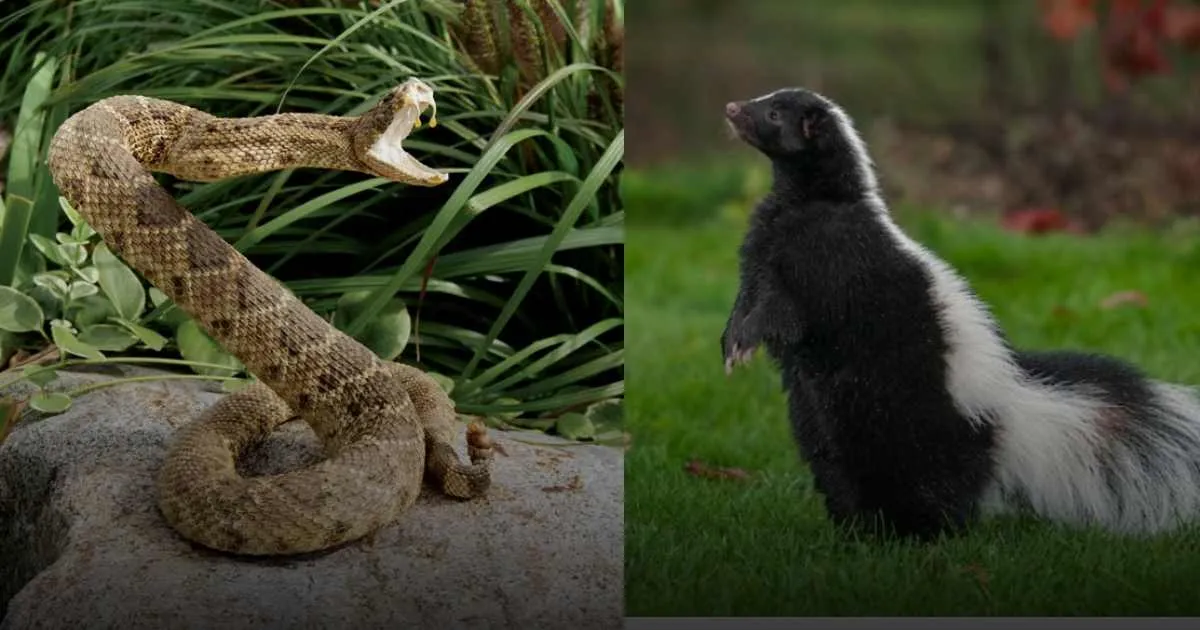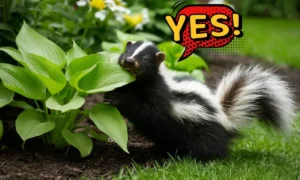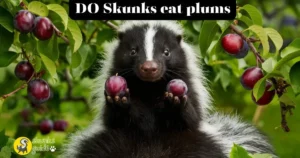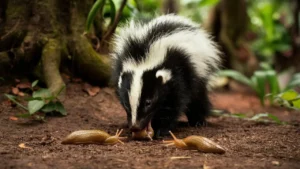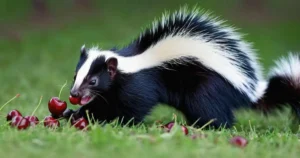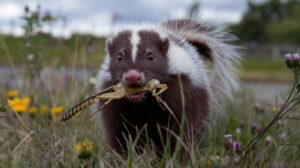Do Skunks Eat Rattlesnakes?
Skunks are fascinating creatures known for their infamous spray, but did you know they sometimes eat rattlesnakes? These omnivorous mammals have a surprising capacity to prey on venomous snakes, thanks to their immunity to certain snake venoms. This article explores the intriguing relationship between skunks and rattlesnakes, their diets, and the role these interactions play in nature.
What Do Skunks Eat?
Skunks are opportunistic feeders with a diverse diet. Their ability to adapt to various food sources helps them thrive in a variety of habitats.
Typical Skunk Diet
Skunks enjoy a wide range of foods, including:
- Insects: Beetles, crickets, and larvae.
- Small Mammals: Mice, voles, and occasionally, snakes.
- Fruits and Plants: Berries, nuts, and roots.
- Eggs: From bird or reptile nests.
- Amphibians and Reptiles: Frogs, lizards, and yes, sometimes rattlesnakes.
Skunks’ diverse diet allows them to play a vital role in controlling pests and maintaining ecological balance.
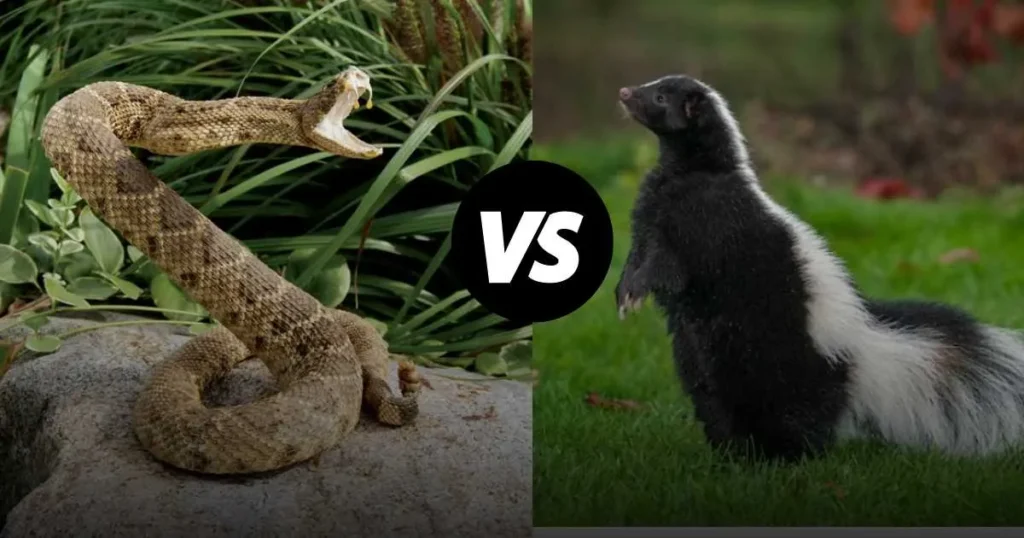
Skunks And Rattlesnakes: Do They Really Eat Them?
Yes, Skunks Can Eat Rattlesnakes
While not a primary food source, skunks can and do eat rattlesnakes when the opportunity arises. This behavior stems from their immunity to certain types of snake venom, allowing them to hunt venomous snakes without fear.
How Skunks Handle Rattlesnakes
Skunks rely on a mix of tactics to subdue snakes:
- Stealthy Approach: Skunks use their keen sense of smell to locate snakes and approach them cautiously.
- Thick Fur Protection: Their dense fur acts as a shield against snake bites.
- Quick Strikes: With sharp teeth and claws, they can kill a snake swiftly before consuming it.
Skunks tend to target smaller or juvenile rattlesnakes as they are easier to overpower.
The Science Behind Skunks’ Venom Immunity
Resistance to Snake Venom
Skunks have a natural resistance to rattlesnake venom. This immunity allows them to survive bites that would be fatal to other animals. Scientists believe this adaptation evolved as a survival mechanism in habitats shared with venomous snakes.
Thick Fur as an Extra Defense
In addition to venom immunity, skunks’ thick fur protects them from snake bites. This fur reduces the likelihood of venom entering their bloodstream, giving them an advantage in snake encounters.
Why Do Skunks Eat Rattlesnakes?
Opportunistic Feeding
Skunks are not specialized snake hunters, but they are opportunistic eaters. If a rattlesnake presents itself as a meal, a skunk will take advantage of the situation.
Nutritional Benefits
Rattlesnakes provide a rich source of protein and fats, essential for skunks’ energy needs. During times of limited food availability, snakes can serve as a substantial meal.
The Role of Skunks in Ecosystems
Controlling Rattlesnake Populations
By preying on young or small rattlesnakes, skunks help regulate snake populations. This predation plays a role in maintaining a balanced ecosystem.
Balancing the Food Chain
Skunks are both predators and prey. Their role in consuming rattlesnakes helps keep the food chain in balance, preventing overpopulation of snakes and protecting other small prey species.
Human Impact on Skunks and Rattlesnakes
Habitat Encroachment
Human development has led to habitat loss for both skunks and rattlesnakes. As these animals come into closer contact with humans, conflicts often arise.
Conservation Efforts
Protecting skunks and rattlesnakes involves:
- Educating Communities: Raising awareness about their ecological roles.
- Preserving Habitats: Ensuring wild spaces remain undisturbed.
- Reducing Conflict: Using humane methods to manage encounters.
Frequently Asked Questions
Do Skunks Hunt Rattlesnakes Often?
Skunks do not actively hunt rattlesnakes but will eat them when the opportunity arises, especially if they encounter smaller or injured snakes.
Are Skunks Immune to All Snake Venom?
Skunks are resistant to certain types of snake venom, including rattlesnake venom. However, their immunity may vary based on the snake species and venom type.
Can Skunks Help Control Snake Populations?
Yes, skunks help regulate snake populations by preying on young and small snakes. This predation contributes to ecological balance.
Conclusion
Skunks’ ability to eat rattlesnakes showcases their resilience and adaptability in the wild. While not a common occurrence, this behavior highlights the complex dynamics of predator-prey relationships in nature. Understanding skunks’ dietary habits and their role in ecosystems can help foster appreciation for these misunderstood creatures. Whether they’re controlling pests or taking on venomous snakes, skunks play an essential part in maintaining the balance of the natural world.

